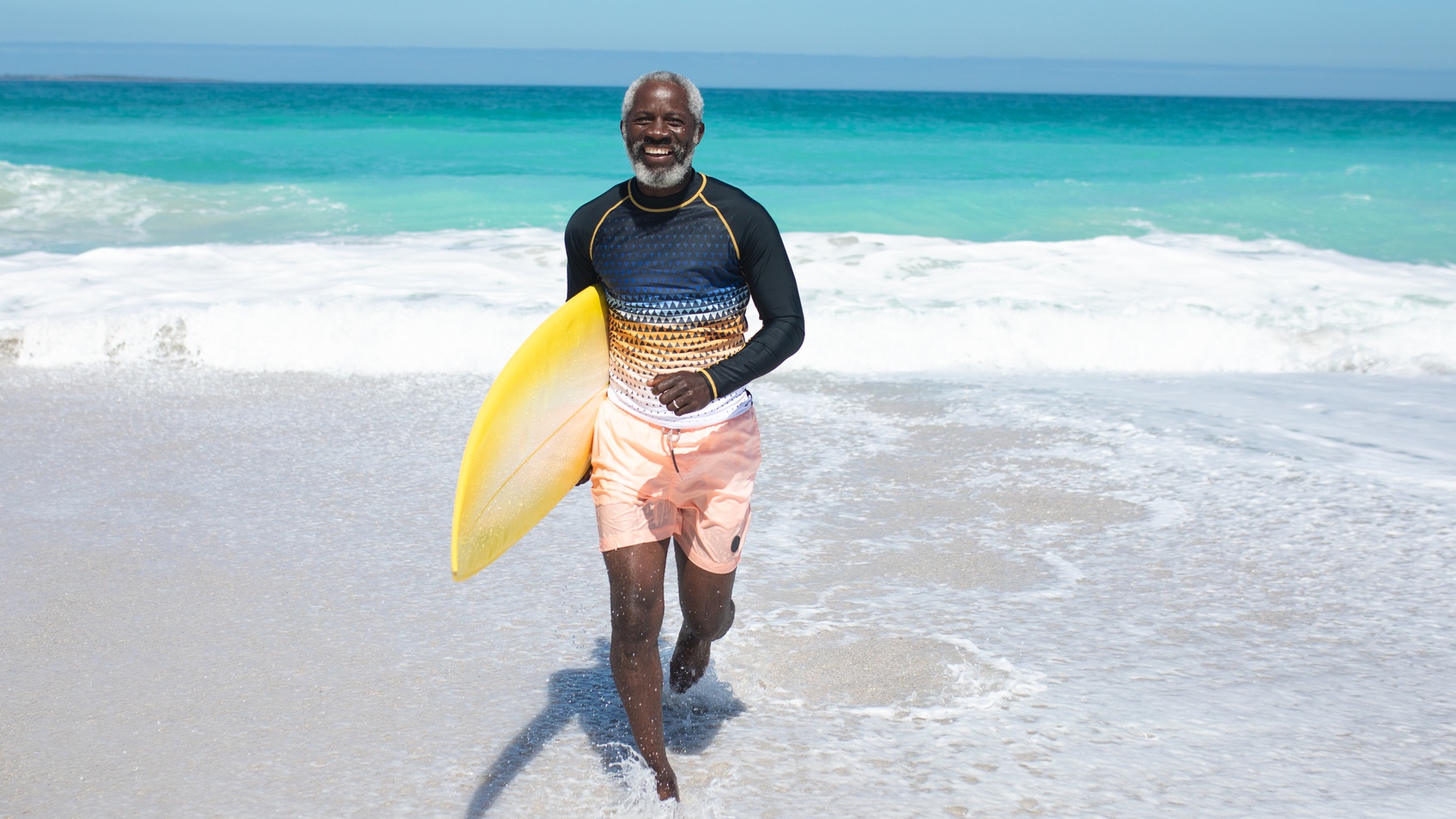Justin “Brick” Howze and Gage Crismond, two friends who were hit with racial slurs while surfing at Manhattan Beach in Los Angeles, are now leading a movement to create a safe space for Black surfers.
The troubling episode that sparked the movement happened this year on Presidents' Day, according to Los Angeles Times. Brick, a 24-year-old musician, was caught up in a couple of collisions while surfing in the water on that day. One surfer, who was agitated when Brick accidentally cut him off, told him to “Get the f**k out of the way.”
The incident escalated when an older white surfer jumped into the argument, repeatedly calling Brick the n-word. He also referred to Brick as a donkey and splashed water in his face. The same man insulted Gage, a 25-year-old dancer, using a gay slur and telling him to “go back to the streets.”
“Go down there … that’s where the Blacks used to surf,” the man added.
The insult was referring to Bruce’s Beach, a once-thriving Black-owned resort that is now in the midst of a land battle in Manhattan Beach as local activists demand the county to return the property to the living descendants of the Bruce family.
Following the Presidents' Day incidents, the two friends reflected on their experiences and discussed how they could improve surf culture. Brick and Gage then decided to organize a movement known as “paddle-outs,” which calls for surfers to paddle out a few yards from shore and join hands in a circle to memorialize someone from their community who has died.
The gesture was seen last summer when surfers organized “paddle-outs” in solidarity with the Black Lives Matter movement, demanding justice for George Floyd, Breonna Taylor, Ahmaud Arbery and many more who died at the hands of state-sanctioned violence.
Brick and Gage announced their plans on Instagram, calling their followers to join hands on the same stretch of Manhattan Beach where Brick was called the n-word. The event, held on Feb. 21, brought together dozens of surfers, camera crews, journalists and observers. Some surfers who joined the movement said it was the freest they've ever felt.
“It was really just about Black joy,” Danielle Black Lyons, a local activist, told the Times. “That was the focus of the day: being around your people, being free to be whoever you are, and surf your face off without worrying about if you were going to make some white guy angry for accidentally dropping in.”
Other surfers said the problem in the water is not only about race, but also about localism.
“It’s rooted in this false sense of ownership,” Graham Hamilton, L.A. chapter manager of the Surfrider Foundation, said. “Like, ‘I live on this block. This is my beach. If you don’t live here, get the f**k out,’ you know?”
Hamilton adds that “the toxicity of localism is heightened and enhanced and exacerbated when race comes into play.”
Jessa Williams, a Black woman who surfs with members of Color the Water, a group offering free surf lessons to BIPOC, said there's also a problem of misogyny. Reflecting on one recent incident, Williams said she was called a racial slur by a white man.
“I’m not trying to take anything away from terrible, racist things happening to men,” Williams said. “They have their own unique layer of danger and vulnerability, but what I think is hard for people to remember is that when something like that happens to a woman, it’s not just about feeling angry, or humiliated, or disrespected. I was afraid.”
Brick and Gage, who started surfing together last year, said the sport has been giving them a sense of comfort.
“We were just on this idea of just making sure that we were creating our own space,” Gage said. “Our own lane in surf, because that’s just naturally what we do with everything.”
After the Presidents' Day incident, surfing has an even bigger meaning for the two men.
“You don’t really have the option to say ‘I’m not an activist' in this type of a moment. Yes, you are," Brick said. "If you thought that was wrong, and there’s a solution to it that needs to be found — yes, you have a responsibility. That’s where we stand right now."
The pair are now calling for people to join Black Sand, a movement they launched to encourage people of color to thrive in spaces where they’ve been historically underrepresented. They have also released Peace Paddle, a brand of T-shirts and crewnecks, donating proceeds to local surf organizations and Bruce’s Beach activists.
“Its purpose and goal now is just increased visibility for people like us in the water and to inspire others who have just tried to be different in spaces that they may not have previously felt comfortable in,” Brick said.
Surfing has also been used as a method of solidarity in places such as Rockaway Beach in New York. That's where hundreds of people came together last summer to speak out against police brutality, The Cut reported. The Black Surfing Association, a nonprofit organization established in 1975, organized the event.
There's also a group known as Benny’s Club, which was launched to create more space for queer people of color in New York who want to try the sport.
“Surf culture’s hypernormativity has really been driven by surf companies and the image they sell makes it hard for nonwhite and queer people to see themselves surfing," Benny’s Club co-founder Johnny Cappetta said. "That said, the industry is slowly catching on, and it’s been heartening to see support going to small surf-activist organizations pushing for inclusion and accessibility.”

